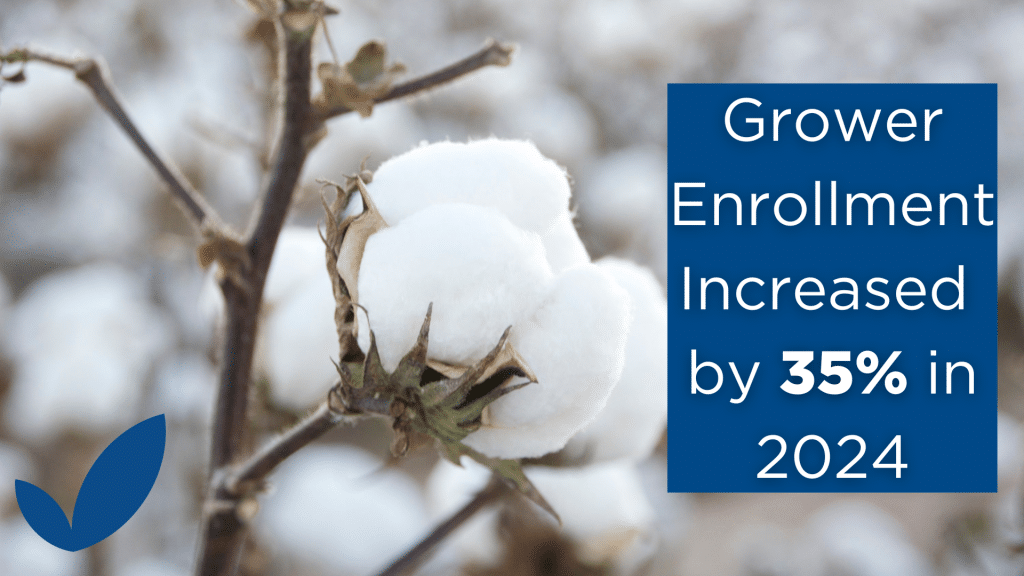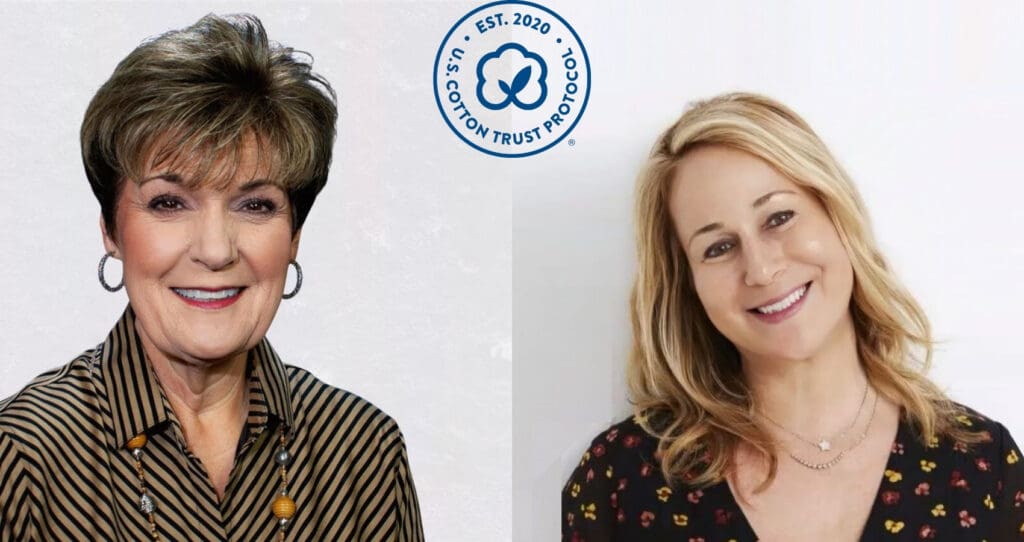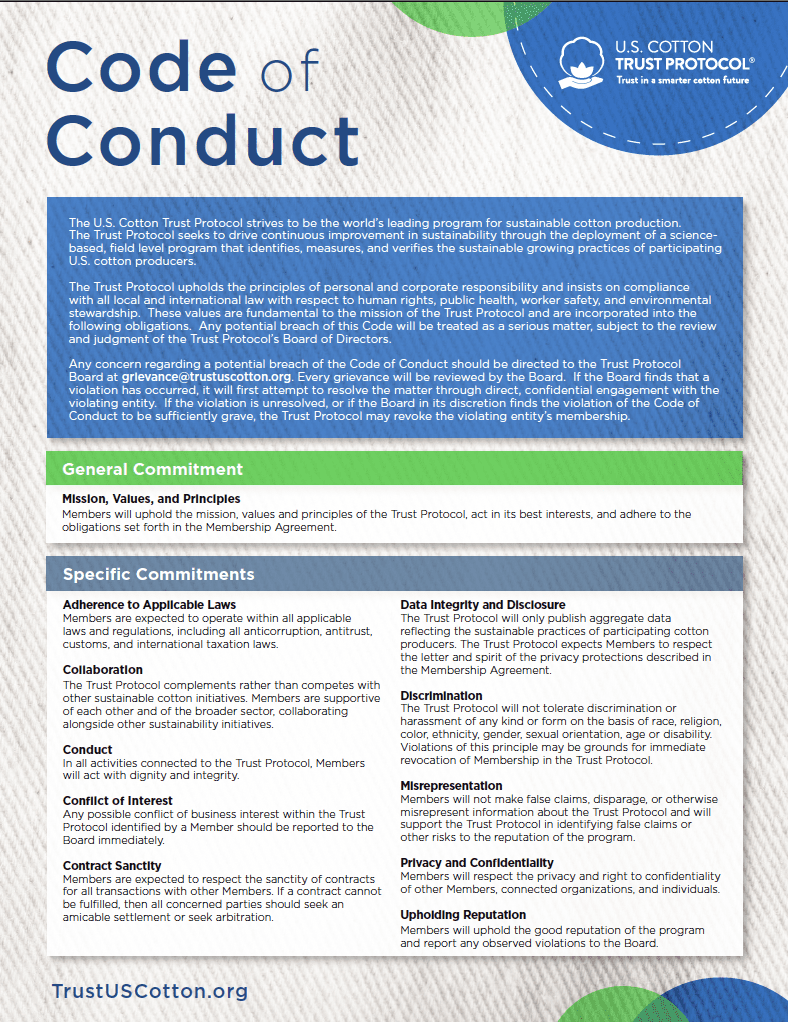- 2.1 million planted acres enrolled for the 2024 crop year, up 31% from 2023.
- Grower enrollment increases 35% from the previous year.
- Continued expansion for fifth consecutive year.
MEMPHIS, TENN (July 24, 2024) – The U.S. Cotton Trust Protocol announced today continued program expansion for the fifth consecutive year – both in enrolled growers and planted acres. Planted cotton acres enrolled increased to 2.1 million acres, up 31% from 2023. This growth is driven by a 35% increase in enrolled growers, demonstrating a strong commitment to sustainability within the cotton industry.
“We are proud to see steady increase in grower enrollment for the Trust Protocol for a fifth consecutive year, reflecting a continued commitment to sustainability within the cotton industry,” said Daren Abney, U.S. Cotton Trust Protocol Executive Director. “It is a collective effort that brings more responsibly produced cotton into the market, providing brands and retailers with greater access to sustainable sourcing options.”
With the increase of 35%, enrollment for 2024 now totals 1,327 growers participating in the Trust Protocol. Enrolled acres for the 2023 crop year resulted in a yield of 1.9. million bales of cotton. The expanded acreage for 2024 will further enhance the availability of sustainable cotton in the market.
“We look forward to supporting our brand and retailer members in their increased uptake of Trust Protocol Cotton and driving value back to our growers,” said Abney.
The Trust Protocol’s core values include a commitment to U.S. cotton’s legacy of authenticity, innovation and excellence, environmental stewardship, caring of people, and personal and corporate integrity. The program currently has more than 2,000 supplier members and over 40 companies and their brands including Ralph Lauren, Gap Inc., Levi Strauss & Co., Carhartt and J. Crew.
To learn more about the Trust Protocol and how to become a member, visit trustuscotton.org.
About the U.S. Cotton Trust Protocol
The U.S. Cotton Trust Protocol is the voluntary sustainability program for U.S. cotton growers and traceability platform for all U.S. cotton. It is the only system that provides quantifiable, verifiable goals and measurement and drives continuous improvement in six key sustainability metrics – land use, soil carbon, water measurement, soil loss, greenhouse gas emissions, and energy efficiency. It is also the world’s first sustainable cotton fiber program to offer article-level supply chain transparency to all members.
Media Contact:
Jayci Bishop
jayci.bishop@hillandknowlton.com
+1 (214) 613-0396
Visit us online at: trustuscotton.org
Follow us at:
https://twitter.com/trustuscotton
https://www.facebook.com/trustuscotton/
https://www.instagram.com/trustuscotton/
https://www.linkedin.com/company/responsibleuscotton/




